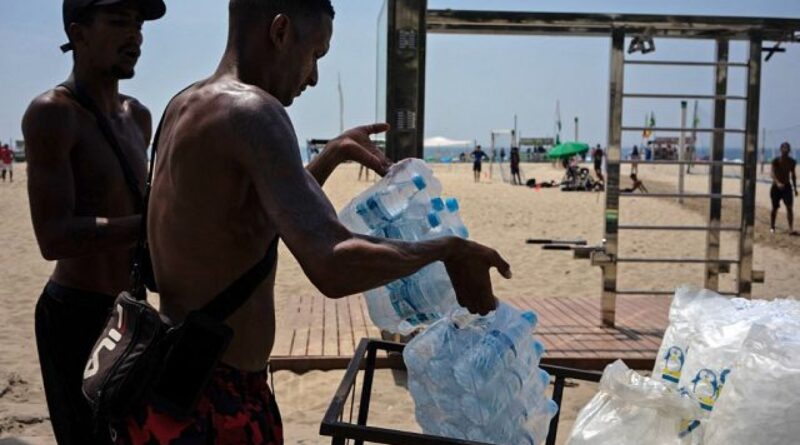South Africa: Residents of Johannesburg struggle to cope as heatwave sweeps across
People across South Africa are grappling with a scorching heatwave sweeping across the country, as temperatures have soared over the past two weeks caused mainly by rising levels of greenhouse gases in the atmosphere.
Local weather experts have issued a warning that the intense heat is likely to persist for more months, prompting authorities to advise people to avoid direct sun exposure between 11:00 and 15:00.
Residents in Johannesburg, the most populous city in South Africa, are struggling to cope with the extreme heat.
“We couldn’t manage this heat, because now we couldn’t sleep at night, during the day you cannot work because it’s so hot. You cannot do anything, and some of us had some heat rash and the kids as well. They couldn’t cope at school,” said one of the residents.
“I’m staying in a shack. So you know in the shake, it’s very hot than these other houses, and then my child, she couldn’t cope. She was always sweating each and every night, even in the morning when I have to take her to school. Even at school they say no, I must take her back, because the heat is not right, so she was bleeding,” said another resident.
While the entire population is at risk, the elderly, children and outdoor workers are particularly vulnerable.
“In the city of Johannesburg we mostly have areas which are informal. In those areas we find river streams, so when we have heatwaves, we’ve got a challenge of young people, young kids trying to play next to these river streams. With the elderly, most of them are on medication, and they might be vulnerable to heat exhaustion, and heatstroke,” said Robert Mulaudzi, spokesman for Johannesburg Emergency Services.
For years, scientists and activists have warned of the consequences of rising levels of greenhouse gases being released into the atmosphere. These warnings are again ringing loud at the the 28th session of the Conference of the Parties to the United Nations Framework Convention on Climate Change (COP28) currently underway in Dubai.
“We have to be quite clear that the signal that we are experiencing is not because of lateral variability, because of the El Nino effect, but that because of the increasing greenhouse gases that the Earth’s temperature is going to increase, is increasing, has indeed already increased, and if we don’t do anything, this is just going to become worse for human life,” said Liesl Dyson, a professor of meteorology with the University of Pretoria.
Global fossil fuel emissions are expected to reach a record high of roughly 37 billion tonnes of carbon dioxide this year, which is 1.1 percent more than in 2022.
This could result in a change in the Earth’s system that would be irreversible, emphasizing the urgent need for climate action.

